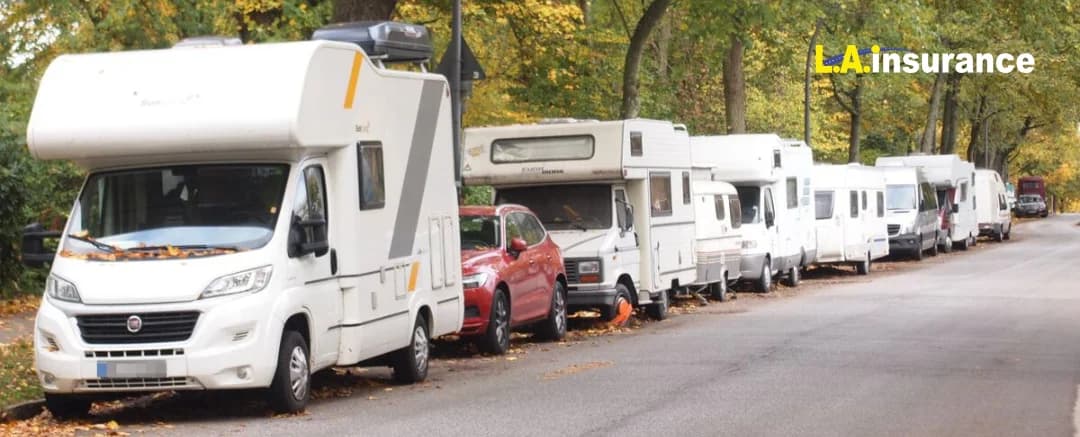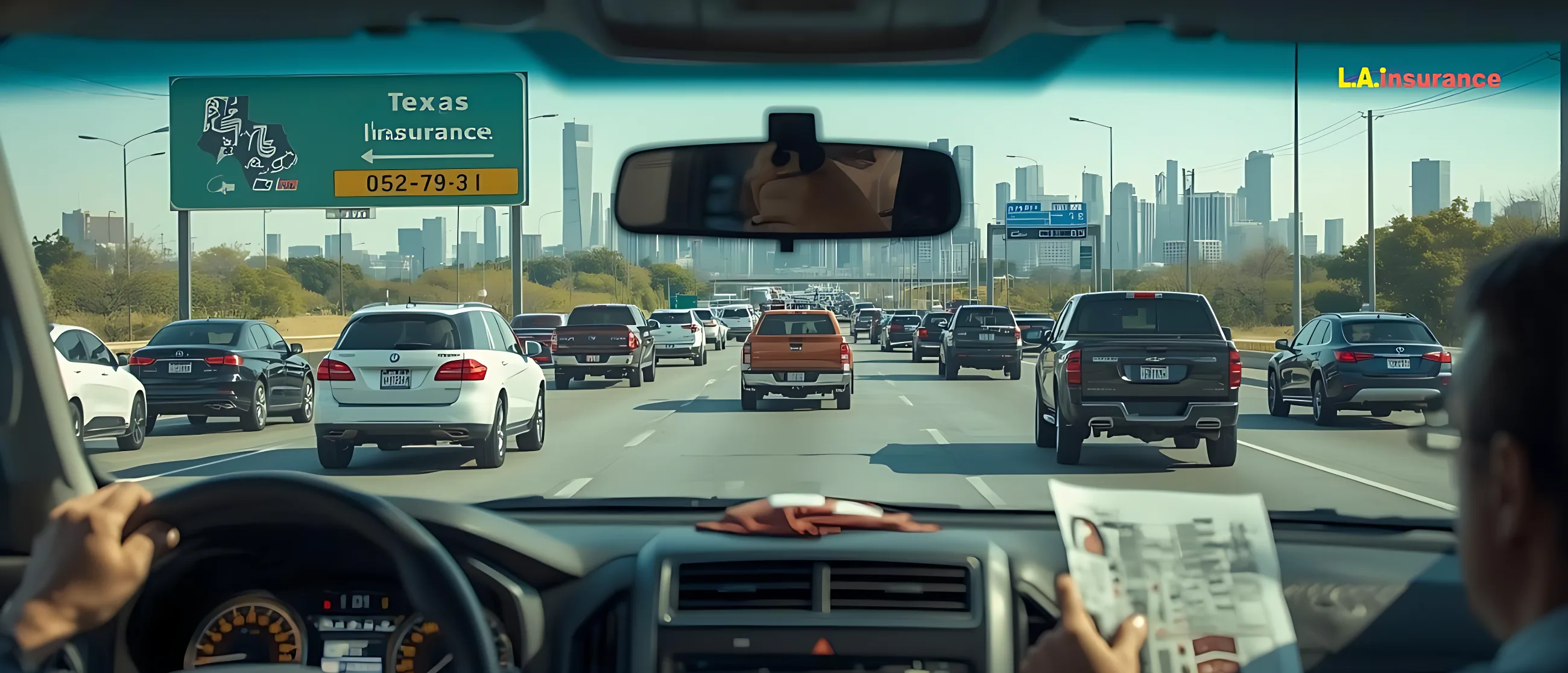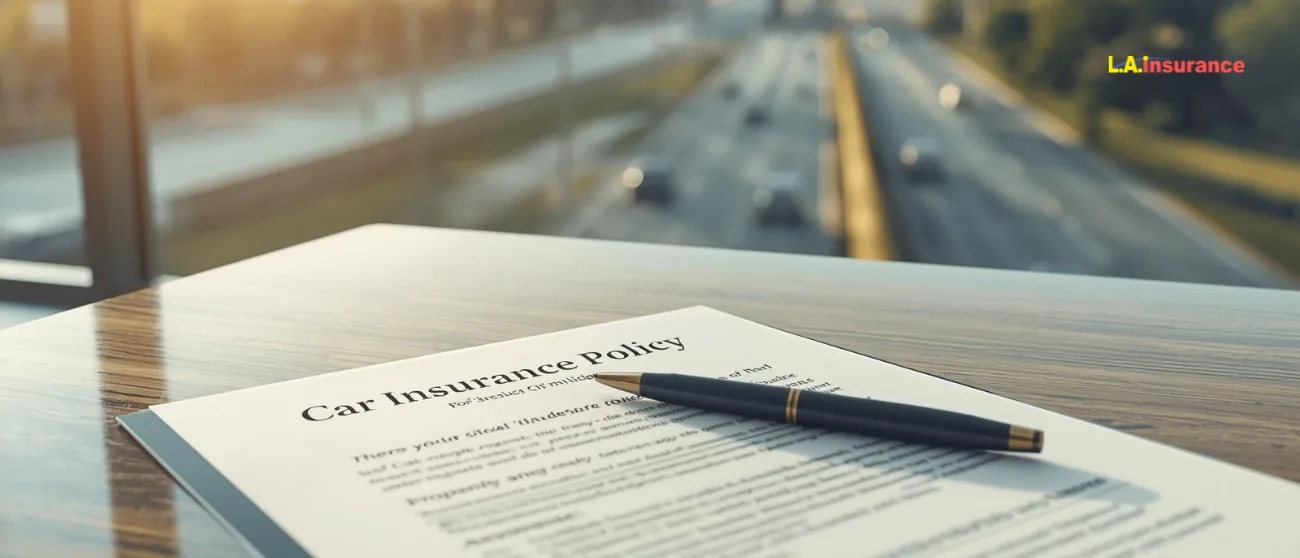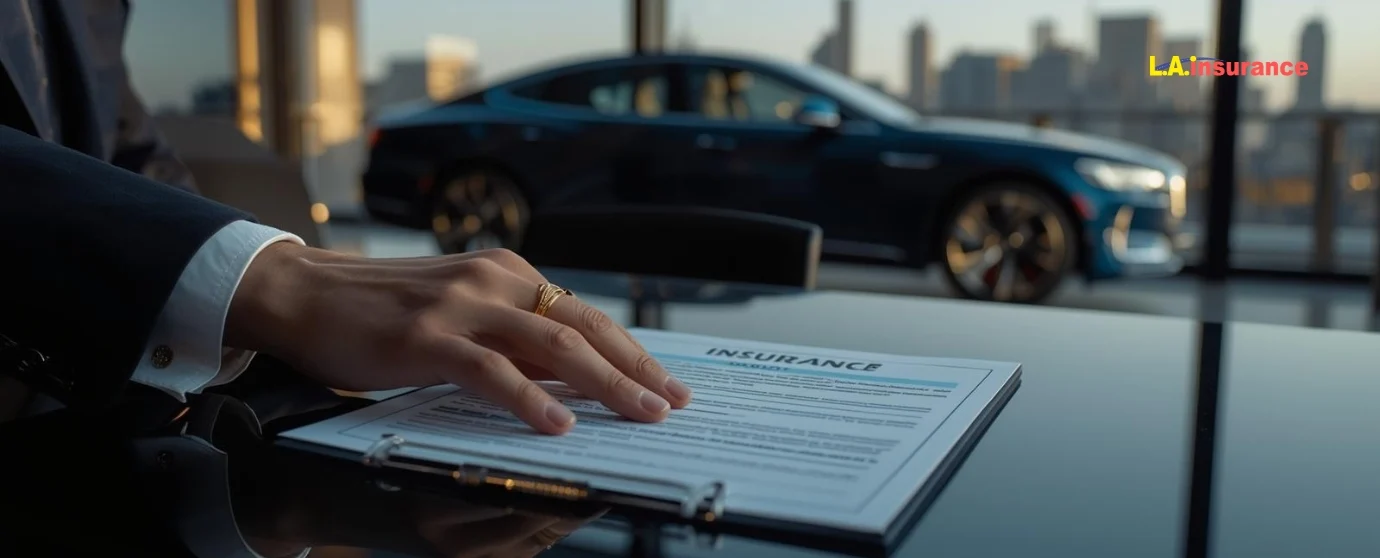
Publish Date: 19-05-2025
RV & Motorhome Insurance
Last Updated: 15-12-2025
How Long Can a Motorhome Be Parked on the Street?
How long you can park your motorhome on the street depends on where you are. There isn't a single legislation that applies to all states or cities in the United States. In some cities, you get 24 hours, and some areas allow RV parking up to 72 hours. In others, parking on the street is completely off-limits.
However, many places might allow temporary parking as long as you have a valid parking permit or a temporary permit that lets you park overnight. If you park the motorhome, campervan, or RV in an area where it’s not legal, you may face fines, or the local authority, like the HOA (Homeowners Association), may even tow it.
Again, the duration or legality of parking your home on wheels depends on factors like local laws, city, and even your own neighborhood’s HOA. It’s better to check the parking regulations before you stop your recreational vehicle on public roads or any residential streets.
Keep reading. In this article, you’ll learn:
- How different factors affect motorhome parking rules on the street
- Time limit in places like Michigan, California, and rest stops
- Laws about parking in driveways
- How to check local laws and city ordinances
- What happens if you break RV parking rules
- Tips to park your motorhome legally and safely
Factors Affecting the RV Parking on the Street
Rules in the U.S. for RV or motorhome parking on the streets vary widely. This means whether you can park on public roads or how long you can park depends on many shifting factors. Let’s explain the crucial factors that really affect your right to park a motorhome on the street.
1. Local Laws and City Ordinances
Every city has its own parking laws. So, what’s allowed in Dallas might be banned in Denver. For instance, if you’re living in Detroit, Michigan, you’re quite fortunate.
According to Section 46-4-19 of the Detroit Code of Ordinances, the city allows temporary parking for 24 hours on any residential street but only for trip loading/unloading.
Meanwhile, in The Colony, Texas, you can’t park a recreational vehicle on a residential street or city streets at all. If your vehicle is unattended for 48 hours, it will be considered abandoned.
Therefore, before you settle in on any public street, make sure to check with your city or town’s parking regulations.
Duration Limits
Many areas set a time cap, like 24 to 72 hours. Once that clock runs out, you must move.
In Lakewood, California, you can get a parking permit for your RV that is registered in Lakewood. This permit allows you to park for up to 3 consecutive days, or 72 hours. After 3 days, you must move your RV or motorhome, or you should move it at least 500 feet away from where it was parked.
The Lakewood city parking permit lets you park your RV on city streets for a maximum of 30 days per year. However, you can only park it for 14 days at a time.
Like Lakewood, many cities make you move your vehicle every few days to reset the timer. So, how long can you stay? Depends on the time limit in local parking rules.
3. Permits and Permission
Some cities allow RV parking only if you have the paperwork. That means applying for a parking permit ahead of time. In San Diego, you can get up to 72 hours of RV parking permits per year, according to the City of San Diego Website. But you cannot exceed 3 consecutive 24-hour periods.
In short, whether you can park your motorhome on the street and for how long depends on the duration limit of the temporary parking permit issued by your city/town.
4. Zoning and Residential Restrictions
Parking on a public street gets difficult in residential zones. Many places restrict vehicle parking near homes.
Some HOAs don’t even let you park your motorhome on the street at all, not even for an hour. In Heath, Texas, for instance, RVs must be stored behind your home’s front line.
So, before you decide to park in neighborhoods, check zoning laws and Homeowners Association (HOA) policies.
5. Safety and Size Concerns
The size of your motorhome is a key factor in determining whether you can park and, if permitted, for how long.
Larger RVs may obstruct driveways, traffic signs, or street visibility, which is why some streets, especially narrow ones, completely prohibit parking recreational vehicles. Since safety is a priority for you, your neighbors, and road users, the size of your vehicle plays an important role in deciding its parking eligibility.
6. Street Signage and Temporary Bans
Even if you follow every law, road signs can still rule out everything.
For example, parking may be temporarily banned for reasons such as snow removal, street cleaning, or construction work. In such cases, signs will typically indicate the specific times and dates when parking is prohibited.
This means that even if you legally park your RV at 9 a.m., it could get towed by noon. Therefore, you should always read the signs before parking. Always.
7. Public Perception and Neighbor Complaints
Although this isn’t included in the lawbook, it still matters.
Neighbors can complain if your RV parking looks like an eyesore. Some even call it “trashy” or a “magnet” for trouble. Even if it’s legal to park, it might lead to drama if people feel uncomfortable. So, you should be mindful of where and how you park.
State-by-State Laws for Motorhome Parking on the Street
Parking RVs on streets differs greatly across the United States because local rules often control these regulations instead of state laws. Here’s a general overview of RV parking rules in some states:
State | General Laws | Permit Required | Parking Duration Limit |
California | Street parking overnight (10 pm to 6 am) is generally prohibited without a permit. Some cities may allow a temporary permit. | Yes. In many cities (e.g., Lakewood, Westminster) | 24 to 72 hours, depending on the city. |
Texas | Vary by city. Each city or municipality sets its own rules. Some cities allow temporary parking for loading/unloading. | Yes, but varies by city (e.g., Richardson allows 4 times per year for up to 7 days) | 24 to 72 hours, depending on the city. |
Florida | Generally, ban overnight parking for RVs, camper vans, and similar vehicles on residential streets, public roadways, or in parks. But some cities may offer a temporary short-term permit. | Yes, varies by city (e.g., Atlantis city code section 13-4(6) allows for one day of parking in any 30 days for loading and unloading) | 24 hours, depending on the city. |
Colorado | Generally, allows to be parked on the streets with time limitations. | May vary by city. For instance, in Arvada, you can park it for up to 72 hours, but it can’t be used as overnight accommodation while parked on public roads. | Can’t be parked on the street for more than 72 hours within 7 days. |
New York | Generally, not allowed. | Maybe. Depends on specific zoning rules. | Not more than 24 hours. |
Michigan | Generally limited. | Depends on the specific city or townships. (e.g., Detroit allows for 24 hours only for loading/unloading or trip preparation) | Typically, between 24 and 72 hours. |
Nevada | Generally permitted. | Regulations vary by city (e.g., Las Vegas permits RV street parking for up to 48 hours with a permit, while Carson City allows 72 hours per occurrence, capped at two occurrences in 30 days. | Generally, 48 to 72 hours. |
Georgia | Generally prohibited for an extended period, and you can’t use RVs as a residence outside designated RV parks. | Varies by locality. Some cities may require permits for short-term parking others may prohibit it entirely. | Varies by locality. For example, Peachtree City allows one day before and after a trip for loading/unloading. |
How Long Can You Park an RV at a Rest Stop?
If you're on an RV adventure, rest stops can be a quick option for temporary parking. However, you usually cannot stay overnight at most rest stops.
In Texas, you can park an RV for up to 24 hours at a rest area, according to the Texas Transportation Code 545.411. In Nebraska, the limit is 10 hours. In Colorado, overnight parking or camping at rest stops is not allowed. In Michigan, you can park at highway rest stops and get some rest. In Utah, all overnight parking and camping are prohibited, and Highway Patrol and other on-site staff always monitor this.
But here’s the thing: not every rule gets enforced strictly. Some travelers park overnight without issue, especially if they stay low-key. So, don’t extend your slides. Don’t set up camp. Just rest and go. Police often overlook quiet stays if you don’t make it obvious.
Still, you must respect posted signs. Check each stop’s rules before pulling in. Parking laws at rest areas aren’t about comfort, they are about safety and flow. If you’re in doubt, ask a local officer or rest stop attendant.
How Long Can You Park Your Recreational Vehicle on a Driveway?
Your own driveway sounds like a safe bet. However, it is not always legal. Rules vary wildly by city, county, and homeowners' associations.
Some places allow driveway RV parking for up to 14 days. In Mississippi, it’s 72 hours unless moved to a side or backyard. California cities sometimes allow recreational vehicles temporarily, but there are restrictions.
If the RV is too long, like over 25 feet, it may be banned. In Michigan, it must stay 8 feet away from sidewalks. However, some towns may allow one RV per home, while others restrict based on vehicle height or use.
If you intend to park your RV on the driveway, we recommend reviewing the local laws, HOA rules, and driveway zoning ordinances.
How to Find Local Motorhome Parking Laws
If you’re not sure if your RV parking is legal on the street, you should contact the authority. One city’s welcome can be another’s violation.
Here’s how to find exact local laws that apply to RV parking on public roads or residential streets:
- Visit your city or county website. Search for “parking regulations” or “vehicle ordinances.”
- Look under sections specific to recreational vehicles or temporary parking.
- Call the local police department’s non-emergency number for street parking rules.
- Reach out to the parking authority or transportation office.
- Check your homeowner’s association (HOA) if you live in a governed neighborhood.
- Read street signs where you plan to park, as they are legally binding.
- Explore RV forums or community threads like Reddit for local experience.
- Ask City Hall or your local DMV if the online rules aren’t clear.
Possible Consequences of Parking an RV on the Street
You will probably face ramifications for parking your RV on the street without checking local or municipal laws. Unfortunately, if you do break the parking laws, the first thing that you’re likely to encounter is fines. Cities may ticket you for ignoring parking restrictions or exceeding 24 hours.
Second, your recreational vehicle could get towed. That’s costly, inconvenient, and embarrassing. In places like New York City, enforcement is swift and unforgiving. Other than parking illegally, if you block driveways, hydrants, or sidewalks, you might face harsher penalties.
Remember, some neighborhoods view RVs as eyesores, and they will report you fast. On top of that, legal vehicle parking may attract vandalism if neighbors feel disturbed. In some cities, you must move your RV every few days, even if you have a permit.
Breaking parking rules may also violate HOA agreements and cause you additional fines. And if someone is living inside, you may face legal trouble or police attention. All we want to say here is to try to avoid unnecessary complications. Don’t park your RV where it’s not legal or appreciated by neighbors or the HOA.
Tips for Parking Your RV Legally and Safely
When it comes to parking your RV/motorhome/campervan on the street, you should consider a few do’s and don’ts. Consider these tips to park your recreational vehicle legally and safely. If followed, you won’t have to lose your peace of mind while you’re on the adventure. Here’s what you should do:
- Check local city websites for parking rules before you park.
- Look for time limits posted on street signs in the area.
- Use a permit if your city requires one.
- Move your RV within the legal time frame to avoid tickets.
- Park close to the curb without blocking traffic or driveways.
- Keep your RV clean and well-maintained to avoid complaints.
- Use your own driveway if allowed by local and HOA rules.
- Use apps or websites that help track RV-friendly zones.
- Talk to neighbors if you plan to park near their homes.
- Choose well-lit areas for safety and visibility.
- Keep your vehicle’s registration and insurance
Don’ts:
- Do not park in front of schools, fire hydrants, or crosswalks.
- Don’t assume a residential street allows long-term RV parking.
- Don’t extend slides, awnings, or steps on public roads.
- Don’t leave trash or supplies around your parked RV.
- Don’t stay longer than permitted, even if no one complains.
- Don’t ignore the HOA’s rules if you’re within a managed neighborhood.
- Don’t sleep in your RV on city streets unless it’s legal.
- Don’t park near intersections or blind corners.
- Don’t park in isolated areas as it may attract theft and damage.
- Don’t make your RV look like it’s being lived in.
- Don’t dump waste tanks in public spaces or drains.
- Don’t argue with enforcements, ask questions calmly and respectfully.
Protect Your Recreational Vehicle and Motorhome with L.A. Insurance
Whether you own an RV for camping or a motorhome where you live permanently, you’re likely to be legally required to have minimum liability insurance for it. L.A. Insurance offers cheap RV and motorhome insurance that helps cover Class A, B, C, and Class B Plus, super C motorized RVs.
If you need to get a quote for an RV, don’t hesitate. Drop a few details about your RV/motorhome, and we will reach out to you with the most affordable RV insurance quote. Whether you’re in Michigan, Colorado, Texas, Florida, Arizona, Georgia, or Nevada, you can talk to one of our reps anytime, physically, online, or by dialing (800) 893-9393. Ensure maximum safety on both on and off the road for your RV and the belongings inside. You’re just one click away from the most affordable insurance agency near you.
Related FAQs: How Long Can a Motorhome be Parked on the Street?
How long can an RV be parked on the street in Michigan?
Up to 24 hours, and only for loading and unloading. Overnight parking isn’t generally allowed without a clear purpose.
Can you park an RV on the street in LA?
You can park for a few hours, but you’re not allowed to stay overnight in Los Angeles. Many cities in LA have strictly restricted overnight RV parking, especially in the westside and coastal areas.
Can I park my motorhome on a residential street?
Yes, but only if local laws and HOA guidelines allow it. Restrictions often apply to size, duration, and placement.
How do I get rid of my RV parked on the street in Los Angeles?
You can report it through LA’s 311 system or contact Parking Enforcement. They’ll inspect and may tow it if it’s abandoned.
Can I park my RV in front of my house in California?
Generally, yes. Some cities allow it temporarily with a permit, but there might be some restrictions as well, such as a time limit. Check your local laws and HOA policies.
Can I park my RV outside my house?
Only if municipal rules and HOA policies accept it. You may also need to follow setback limits and duration restrictions.
Editorial Disclaimer
The information provided on this blog is for general informational purposes only and does not constitute professional insurance, legal, or financial advice. Coverage and rates are subject to individual eligibility, underwriting guidelines, and state availability. For specific questions regarding your policy or to get an accurate quote, please contact a licensed L.A. Insurance agent directly. We're an independent agency and not a direct insurance carrier. For more information on how we operate and handle your data, please see our Terms and Conditions and Privacy Policy.
Tag :
RV & Motorhome Insurance
RV insurance








